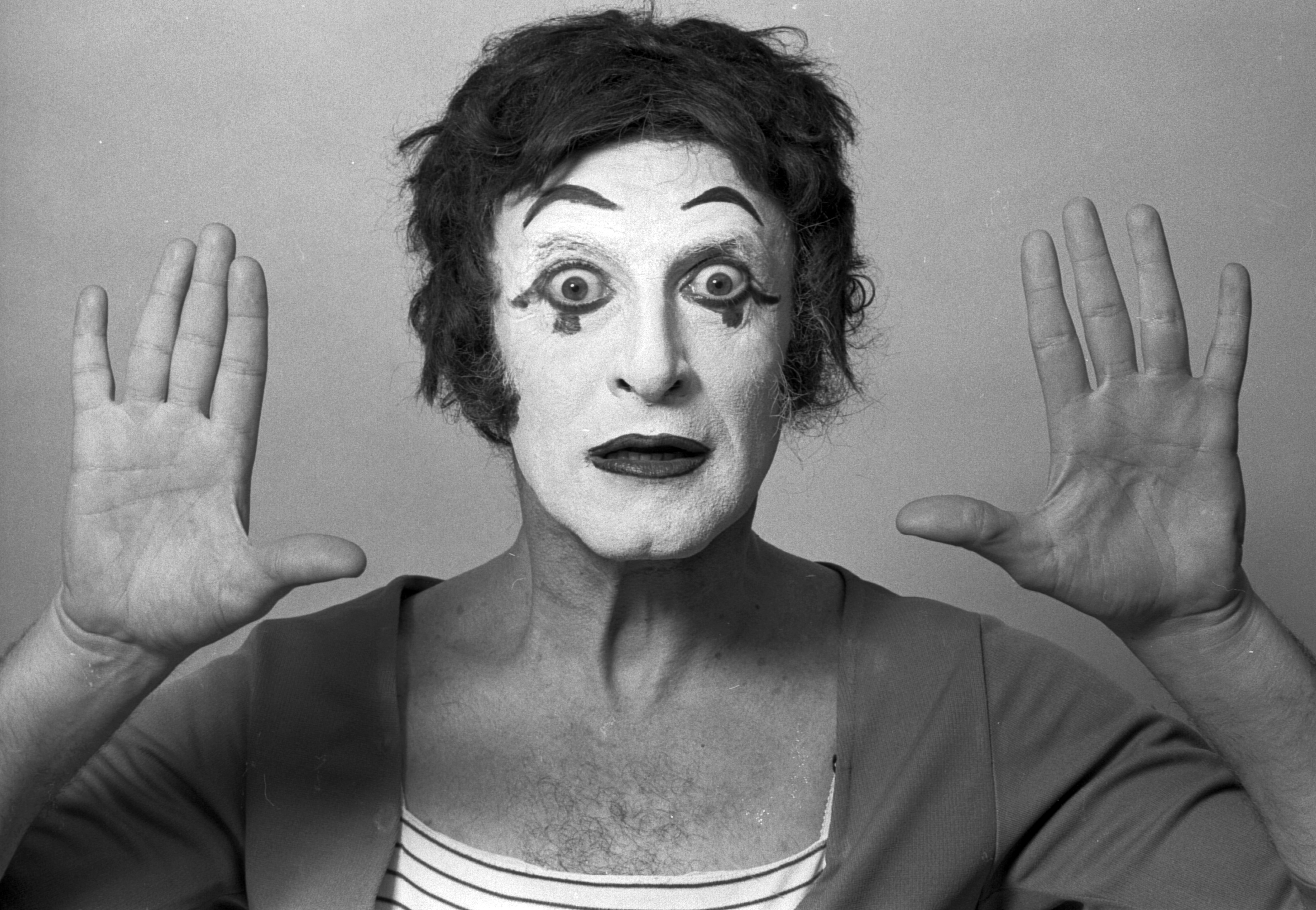“Vanity, vanity. Everything is vanity, but you need to know that you have to go toward the light even if you know that one day we shall be dust,” recalled famed mime Marcel Marceau in 2001. “What is important are our deeds during our lifetime.”
And indeed, Marceau lived and died by those words.
Known as a master mime throughout the world post World War II, it was partly Marceau’s silence that helped save the lives of at least 70 Jewish children during the Holocaust.
In 1939 — after French authorities declared that Jewish families within the city of Strasbourg had two hours to pack and join a transport train bound for southwest France — the 15-year-old Marceau and his older brother Alain fled their birthplace. Marceau’s mother survived the war. His father, however, was murdered in Auschwitz in 1944.
Escaping to the city of Limoges, Marceau entered art school at the same time as he entered the French Resistance. When France quickly fell to Nazi Germany that following spring, the budding performer used his training to forge new identity cards for French youth to make them appear too young to be conscripted into German labor camps.
In 1944 Marceau was recruited by his cousin, Georges Loinger, to join Oeuvre de Secours aux Enfants, a secret Jewish unit of the French Resistance that smuggled Jewish children from occupied France into neutral nations.
“Their mission,” writes History.com, “was to evacuate Jewish children who had been hiding in a French orphanage and get them to the Swiss border, where they would sneak to safety.”
Marceau’s training as an actor and mime was no longer for show — it became the difference between life and death.
According to Loinger, the children adored Marceau and trusted him implicitly. “The kids had to appear like they were simply going on vacation to a home near the Swiss border, and Marcel really put them at ease.”
Often taking on different disguises, Marceau recalled that he once went “as a Boy Scout leader and took 24 Jewish kids, also in scout uniforms, through the forests to the border, where someone else would take them into Switzerland.”
He shepherded children on the perilous journey three times before joining the Free French Forces of Charles de Gaulle in 1945. However, by war’s end, Marceau returned to his first love — the arts — using pantomiming as an outlet for his grief.
“You see the pain and the sadness in his mime skits,” Loinger said. “The origin of that pain was his father’s deportation.”
In 1947 Marceau created the character Bip and incorporated his war experiences into what was to become his alter ego.
His audiences eagerly identified with Bip and Marceau became world-renowned, frequently performing in the United States and even Israel.
Despite his later successes as Bip, the mime’s earlier, perhaps most important act, was not forgotten. On April 30, 2001, Marceau received the Raoul Wallenberg Medal from the University of Michigan — named after the Swedish architect and humanitarian credited with saving the lives of tens of thousands of Jews during the Holocaust.
“I cried for my father,” recalled Marceau while receiving the medal in 2001, “but I also cried for the millions of people who died….Destiny permitted me to live. This is why I have to bring hope to people who struggle in the world.”
“I create metaphors with the hands,” he concluded. “A struggle between good and evil.”





